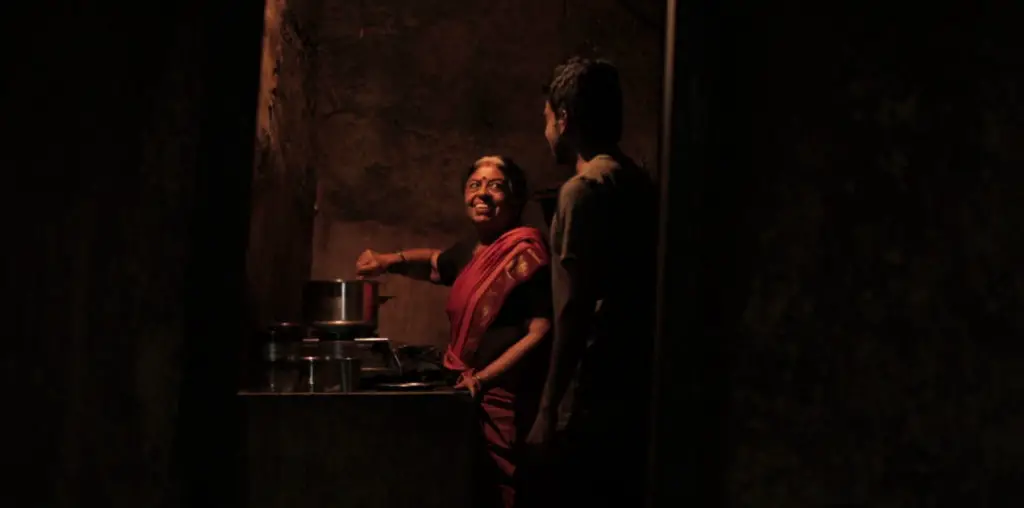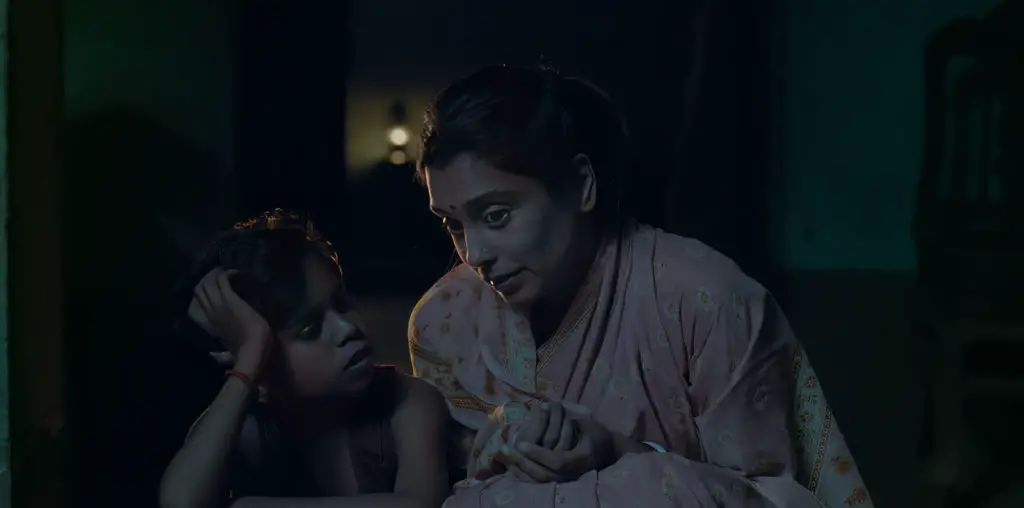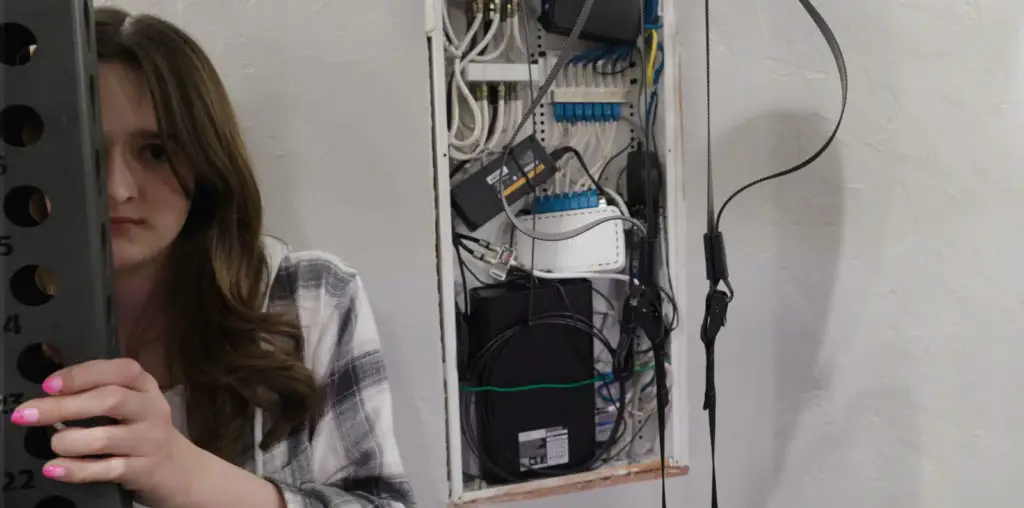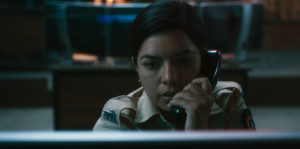
Writer-director Sudeep Kanwal’s crime thriller, Privacy, asks an important question. Is our safety worth the cost of our privacy? In Mumbai, India, the government has decided, in an effort to reduce crime, to double the number of CCTV cameras surveilling the city. This decision has sparked debate on all the new channels with statements, “If you don’t commit crimes, you have nothing to worry about.” Opponents question the qualification of those sitting in dark sequestered rooms watching, stalking our every move.
Roopali (Rajshri Deshpande) is a police officer obsessed with solving a robbery/homicide committed on her watch. Two men beat and robbed the owner of a jewelry store. When he fought back, one of the men shot him. Roopali now sits in front of a series of screens reviewing the footage frame by frame in hopes of identifying the perpetrators.
There is more at play here. Working against Roopali is her entire department, which ultimately wants to get rid of her. If she can’t identify the criminals, she’s out. At the same time, Roopali has her sights fixed on a couple living above in a high rise looking over the crime scene. She observes them at first as a loving couple, and then tension builds between them over time. Knowing that she has to produce results, Roopali decides to conduct her own investigation while off-duty and against protocol. She forgets that her co-workers can see her lingering around the crime scene.
As a thriller, Privacy works like an onion. A layer is peeled away after every scene. These layers expose the crime at hand and Roopali’s motivation to solve this crime under the nose of her superiors. We soon learn that Roopali is not just investigating the crime but battling against corruption in her department and something very dark in her past. As one who is paranoid about the constant surveillance we volunteer for, this hits home.
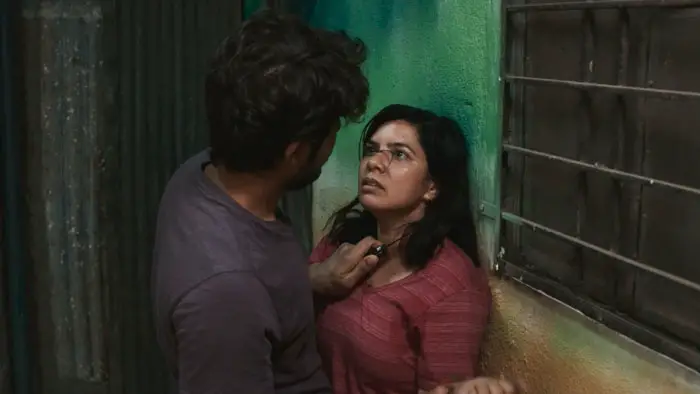
“…Roopali decides to conduct her own investigation while off-duty and against protocol.”
The film’s an engaging thriller, but not precisely Tony Scott’s Enemy of the State. It constantly questions the pros and cons of a surveillance state. Yes, it helps solves crime, but at the same time, it becomes a powerful tool for those in charge. Roopali discovers that this power is like an aphrodisiac for those who hold it. My enjoyment works hand-in-hand with my enjoyment of international movies in general. The motion picture features hard-working filmmakers who are probably five-to-ten years behind their American counterparts in their level of sophistication.
Privacy feels very much like an indie production. The actors are not exactly “stars” of India, but B and C character actors looking for a break. Most of the special effects are akin to CSI-level technology, and the crime thrills are also low-budget.
I will say this is not the easiest plot to follow. The subplots get confusing if you’re not paying full attention. I’ll be brutally honest: it’s also not as hard-hitting or gripping as American thrillers, not even close. However, Kanwal puts together a better action-thriller than those of the 1980s and 90s.
Privacy will make a great palate cleanser to your over-the-top crime thriller dreck that Hollywood is putting out now.
For more information about Privacy, visit the Fundamental Pictures website.
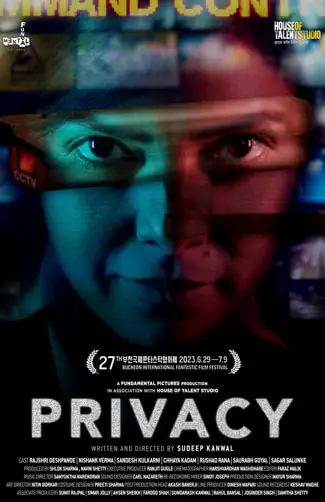
"…a great palate cleanser to your over-the-top crime thriller dreck that Hollywood is putting out..."
